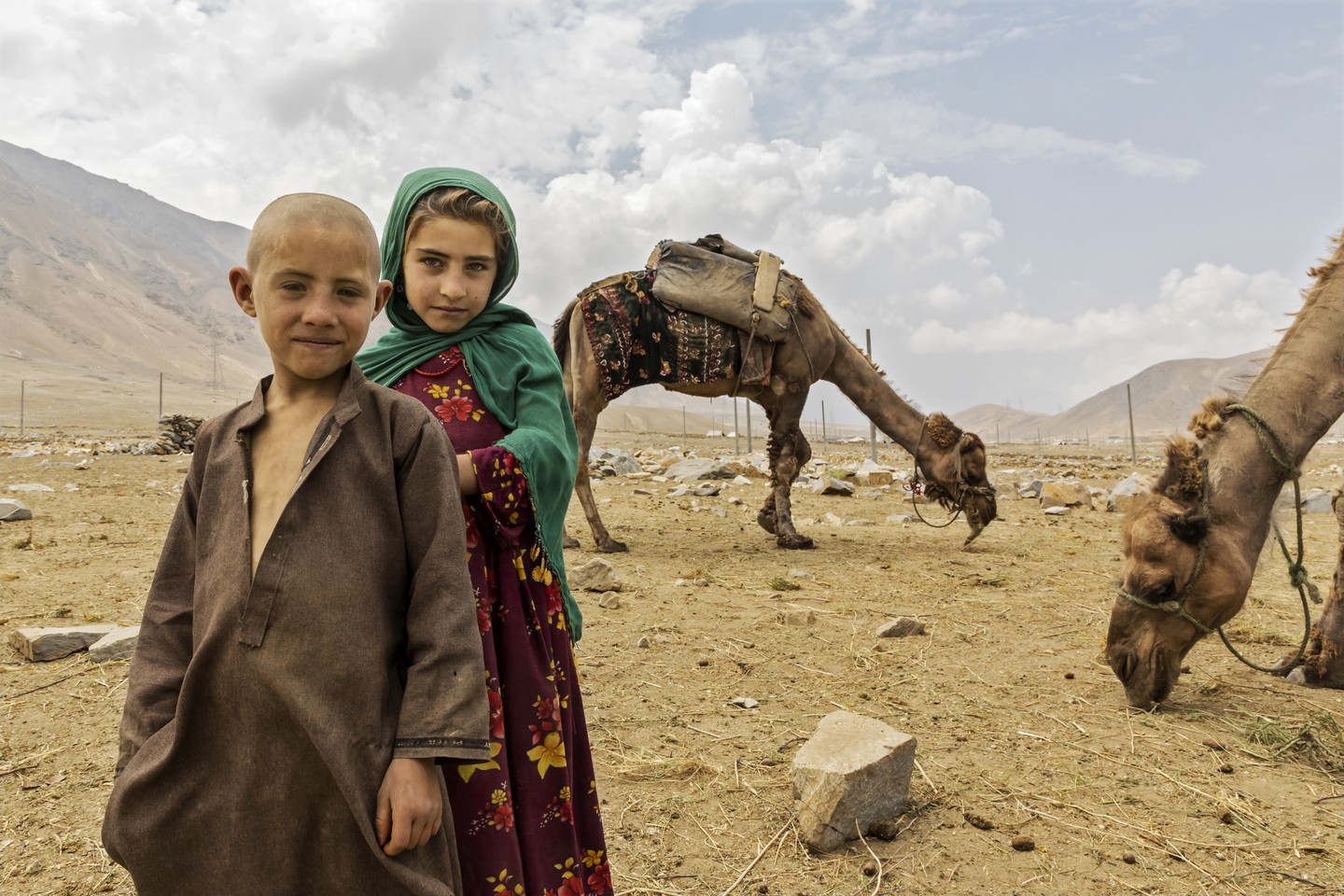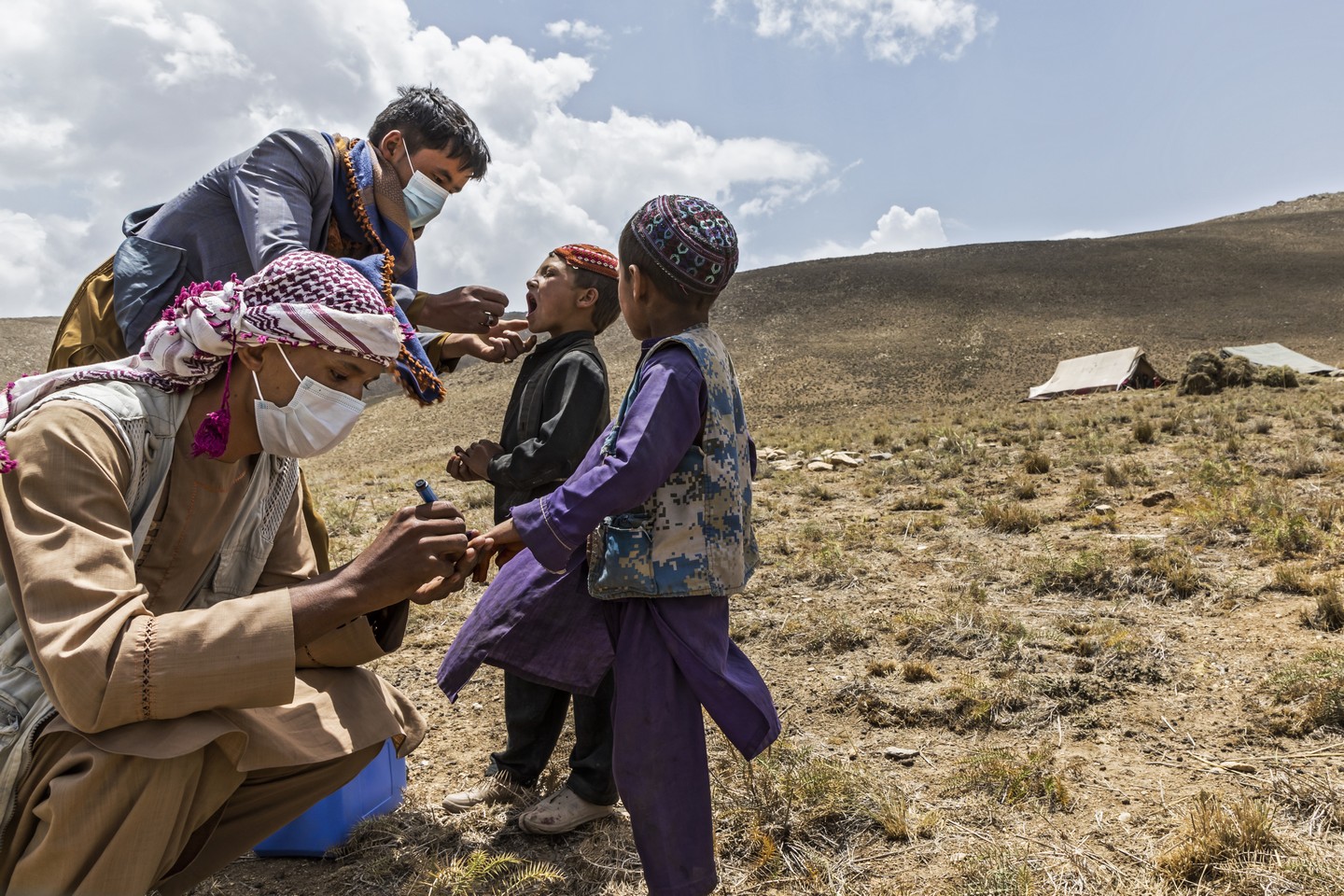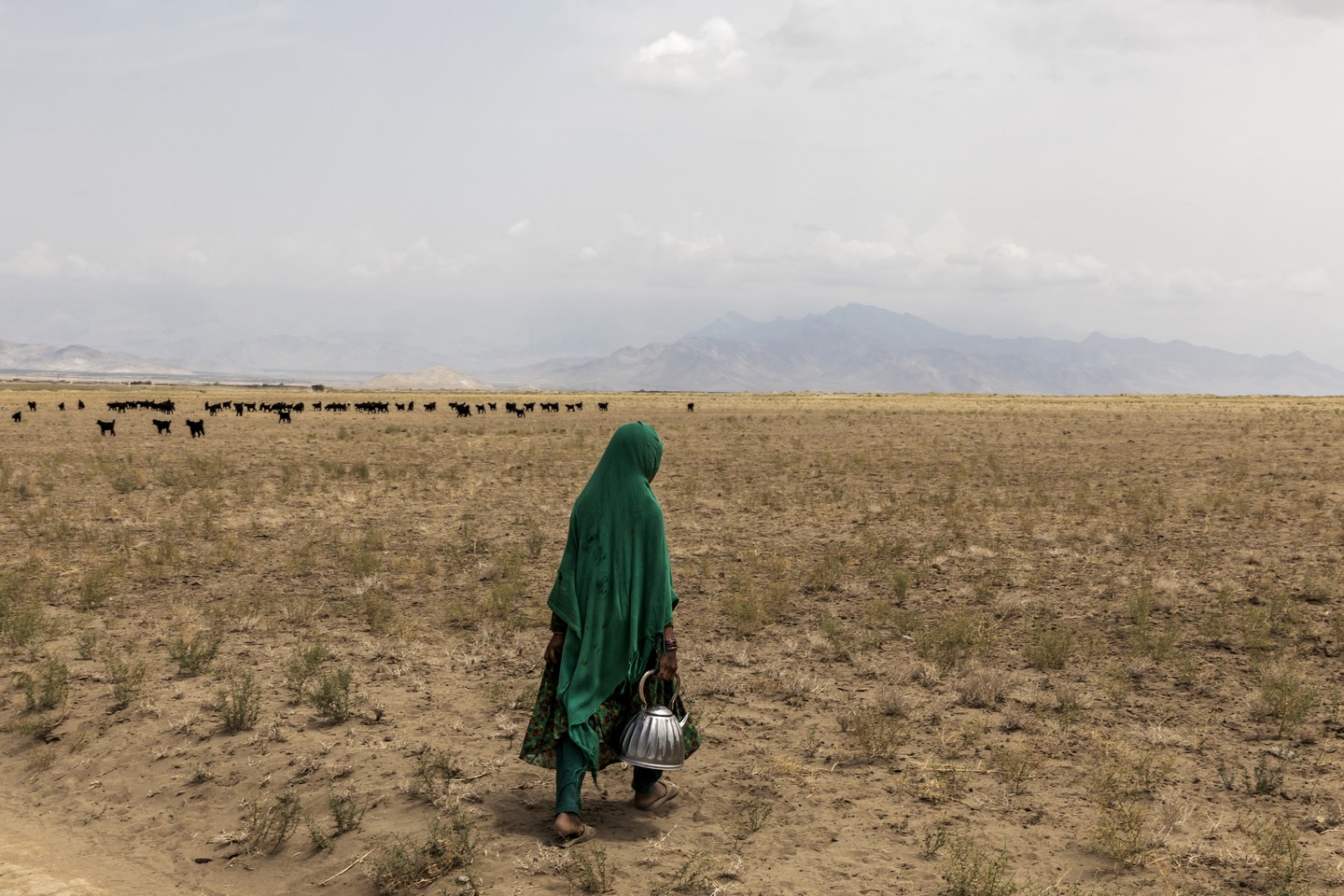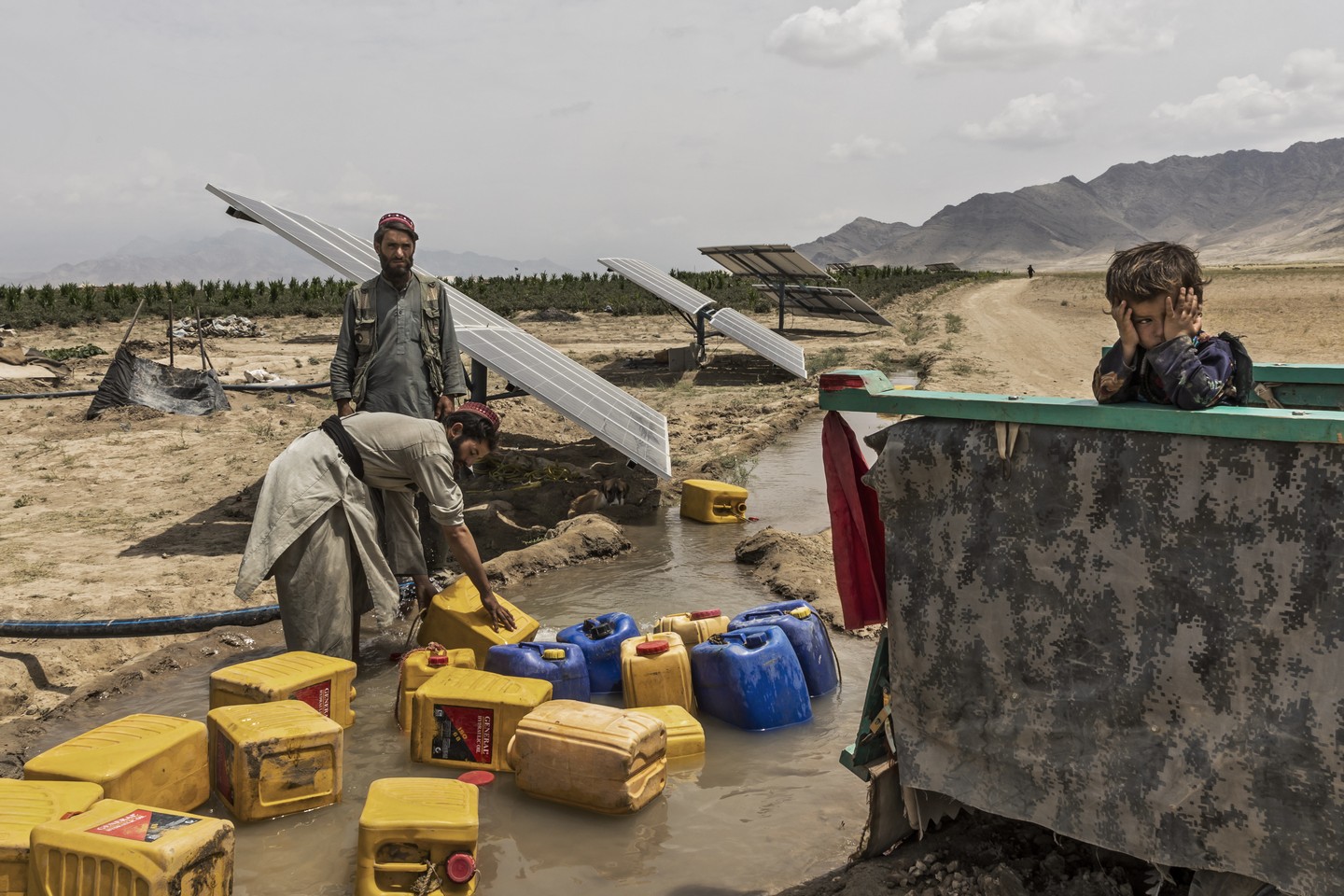Afghanistan: Pastures of Sand
Text by Elena Dak
Photos by Bruno Zanzottera/Parallelozero
Abridged by Syharn Shen (沈思含)
Afghanistan: Pastures of Sand
Text by Elena Dak
Photos by Bruno Zanzottera/Parallelozero
Abridged by Syharn Shen (沈思含)

The drought in Afghanistan has become ever more severe, directly impacting the lives of the nomads and their flocks.
Young men from the new Taliban are found scattered across Afghanistan's many checkpoints, posing as both victors and prospective army members. Some joined out of religious fervor, but many more for survival in a country where 24 million people are in need of vital humanitarian aid and the unemployment rate has reached 98%.
Our journey to Afghanistan focuses on understanding the impact of four decades of war on the nomadic Kuchi of Pashtun ethnicity, who used to migrate with their flocks between Afghanistan and Pakistan. To find them, we travelled hundreds of kilometers across rugged mountains, green-banked rivers, and clay villages. It is in one of these pastoral landscapes, where it seems that the war that devastated the country never existed, that we encounter the first tents of the Kuchi nomads and their flocks scattered on islands of emerald pastures. We meet Dawlai, a shepherd with a proud appearance and a piercing gaze, who is the leader of a group of Kuchi nomads. These nomads are facing growing issues with the new rulers who are allocating their pastures to agriculture and depriving them of their land. "We have always defended them. We hid them in our tents when they were threatened and chased by American drones, and now they want to drive us off the land where we have always lived," says an elderly shepherd from a tent close to Dawlai's, very angry at the new masters of Afghanistan.

At a Kuchi camp in the province of Wardac, a team of young Hazara volunteers vaccinate children against polio.
The Taliban governors seem to be favoring those who fought alongside them, distributing land to them at the expense of nomads. This, combined with the severe drought affecting Afghanistan, has made nomadic life even more challenging than during the prolonged war. The land has dried up, the pastures are impoverished, and so the struggle for access to the scarce resources of grass and water is becoming increasingly bitter. Being a shepherd has never been an easy choice, but in times of drought, when there is a shortage of raw material to feed the cattle, doubts overwhelm even those who have always lived this way and are used to a very frugal lifestyle. In the province of Bamyan, access to scarce water resources has led to heavy clashes between the Kuchi and Hazara nomads, who are of Turkic ethnicity and with Mongolian features. Now, the Hazara have asserted themselves there, leaving the Kuchi nomads absent.
We have another encounter with a Kuchi nomad, Lawang, an old man returning to his summer camp in the mountains at an altitude of more than 3,000 meters. The path climbs steeply and he walks along it slowly but steadily, holding the end of his sacks tightly against his chest and his back bent forward. We ascend with him in silence and the wind pushes so hard against our bodies that we lose our balance. After an hour and a half, we arrive at the camp. Almost indistinguishable from the stones, amidst a thousand shades of grey and green, six tents and small flocks emerge. Removing our shoes and sitting on colorful wool carpets, Lawang offers us green tea, yoghurt, butter and cooked bitter herbs. Among nomads, even the poorest of them, hospitality is an absolute duty. The moment one enters a tent, the owner will offer tea and sometimes even an entire lunch. Lawang complains about the lack of rain and the drying up of the pastures. "It has not rained for too long and we have no grass for the animals. We are forced to climb higher and higher in search of food for them that is increasingly difficult to find. I do not know what will become of us if the situation does not change for the better."

In the province of Kabul, a Kuchi-Karouti girl carries a kettle of green tea to a shepherd.
As pasture availability dwindles, families are forced to descend from the mountains earlier, some resort to selling their dromedaries, and others are compelled to ascend higher in search of scarce fodder. In the desert land of Badakshan, sparse tents stand amidst small dunes and dry grass, where herds kick up dust rather than graze. Some shepherds buy water delivered by tankers while others trek kilometers daily with donkeys carrying jerrycans to find water.
Despite these challenges, most nomadic families resist changing their lifestyle and are trying to adapt—a trait inherent in nomads. However, Afghanistan today is almost in chaos. Those designated to govern seem inexperienced, young, and more focused on domination rather than governance. Promises made have been betrayed, particularly those regarding women's rights. While some claim these are temporary measures, month by month, restrictions become more severe. In all this chaos, nomadic women, crucial to their families' economy and unable to be confined due to their lifestyle, might have a slight advantage. But it is a small consolation in a country where survival becomes more difficult every day.

In the province of Kabul, Kuchi-Karouti herders fill their jerrycans with water at a well created to irrigate the fields. Due to war and drought, many herders have lost part of their flocks and therefore have to work in the fields during the summer months.
Contact Us | Plan a Visit | Donate
8 Lide Road, Beitou 11259, Taipei, Taiwan
886-2-2898-9999
005741@daaitv.com
©Tzu Chi Culture and Communication Foundation
All rights reserved.
